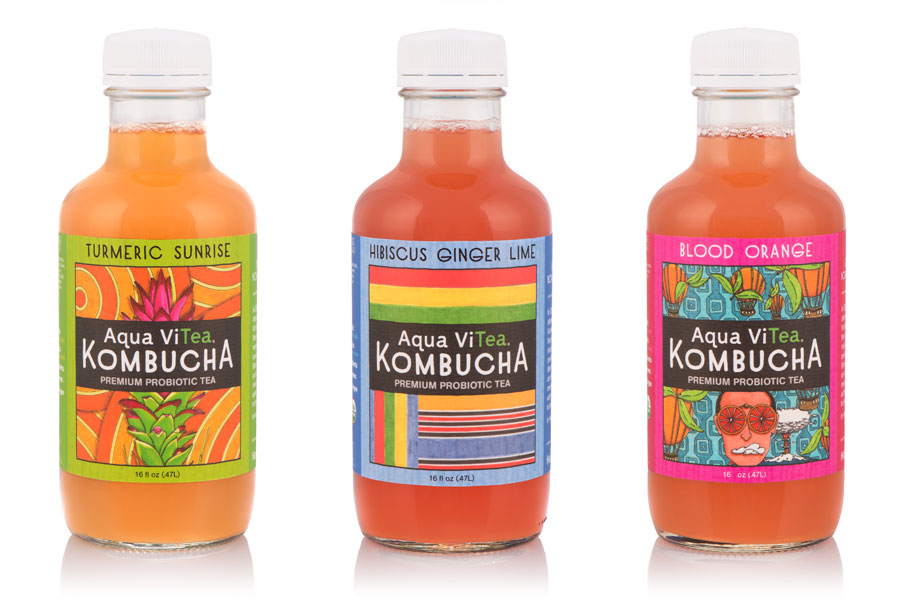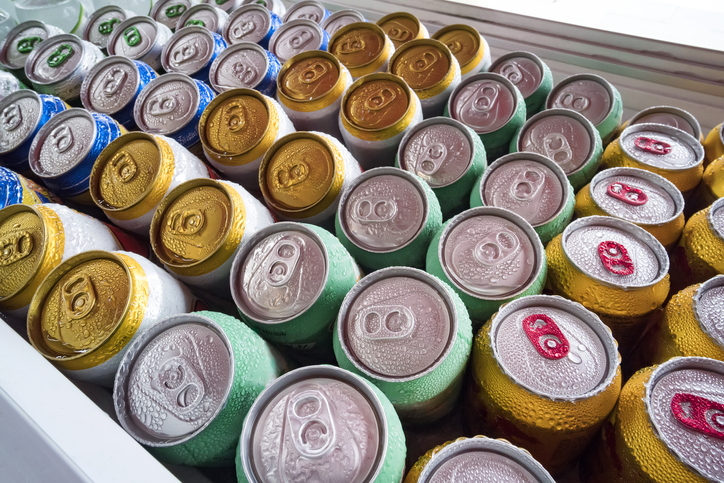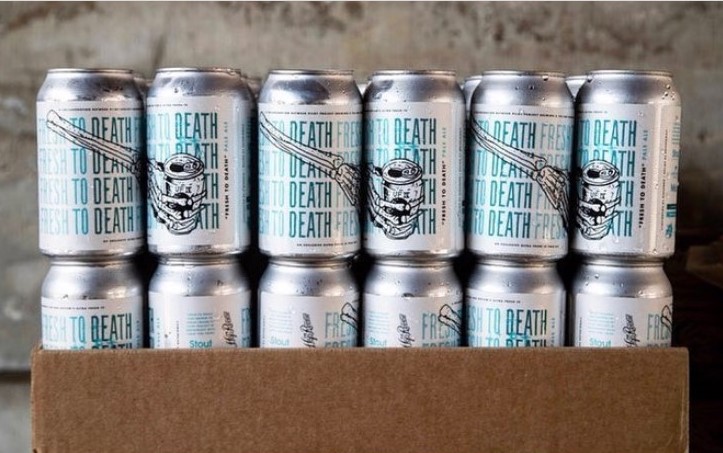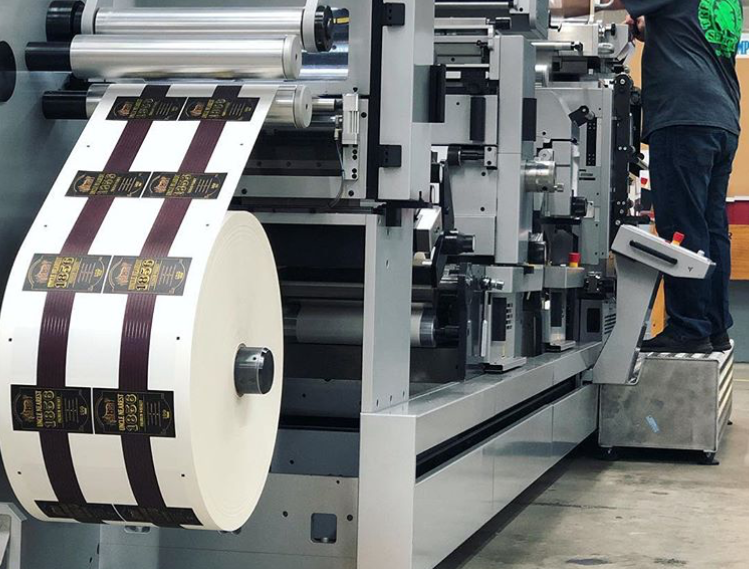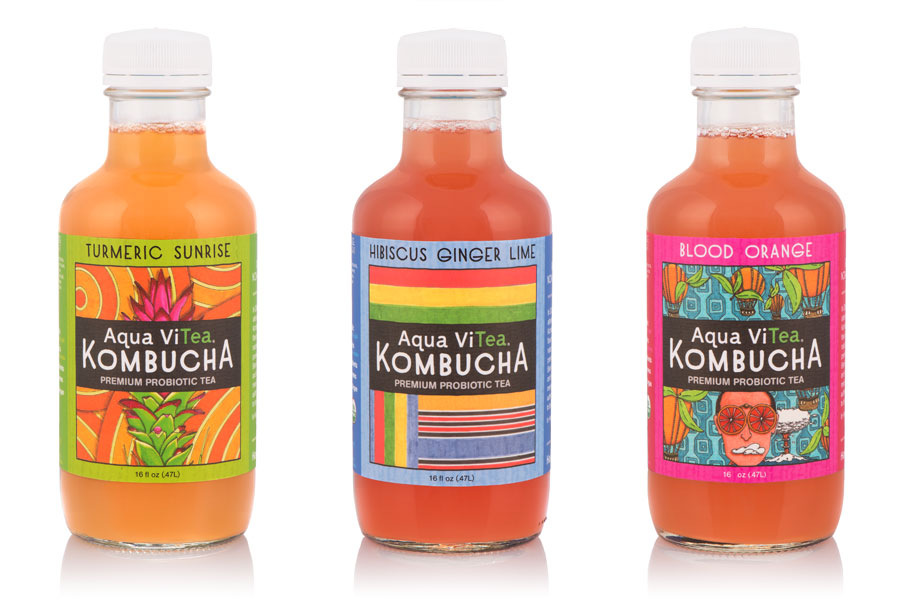Key Compliance Considerations You Need to Know for Your Kombucha Labels
- Beverage Containers
- compliance
- FDA
- kombucha labels
- organic
Once an underground sensation, kombucha is becoming big business. According to The Specialty Food Association, the kombucha market had $1.5 billion in sales in 2017 and is expected to grow 23 percent over the next five years. However, the growing kombucha market is drawing attention from more than just thirsty customers, which makes proper packaging even more important than before.
A kombucha label is more than just a way to brand your products. It also serves as a compliance tool to ensure that your products are labelled in accordance to any government regulations. Here are the kombucha basics and some important areas that can directly impact labels for kombucha.
Impact of Alcohol by Volume for Label Requirements
Due to the fermentation process, there is a small amount of alcohol in kombucha. The exact amount is a very important piece of information for your kombucha labels, because it can determine whether your product is considered an alcoholic beverage. This status drastically affects how your kombucha is regulated, along with which organization oversees the regulations.
The basis for determining if your kombucha is considered an alcoholic beverage is simple: if it contains at least 0.5 percent alcohol by volume, it’s an alcoholic beverage. If your kombucha falls below that threshold, your labels fall under the guidelines of the Food and Drug Administration (FDA). The FDA has specific requirements about what must be included for both the principal display panel and the information panel.
- Principal display panel
- Statement of identity/common name of the food
- Product brand
- Net quantity statement/amount of product
- Information panel
- Name and address of the manufacturer
- Name of the packer or distributor (if different from the manufacturer)
- Ingredient list
- Nutrition facts
- Any required allergy labeling
If your kombucha has an alcohol by volume of at least 0.5 percent, your kombucha labels are subject to the regulations of the Alcohol and Tobacco Tax and Trade Bureau (TTB). This means that the TTB will require you to qualify as a brewer, which calls for different regulations. According to the TTB, each alcoholic kombucha container must display:
- The name or trade name of the brewer
- The net contents of the container
- The nature of the product (such as “beer”)
- The place of production
- An official health warning statement that reads:
- GOVERNMENT WARNING: (1) According to the Surgeon General, women should not drink alcoholic beverages during pregnancy because of the risk of birth defects. (2) Consumption of alcoholic beverages impairs your ability to drive a car or operate machinery, and may cause health problems.
The TTB’s rules for the health warning statement involve more than just what it says. There are specific regulations involving the legibility and type size as well, all of which can be found in the Electronic Code of Federal Regulations.
Health Claims
While you and your customers may understand the health benefits of kombucha, the FDA has the final say on what you can or cannot claim on your labels. The FDA’s rules on health claims are very strict, with enforcement measures that include product recalls, seizure of goods, and criminal prosecution. This means you need to be careful when promoting the health benefits of kombucha.
There are three different types of claims that you can make on a label: Authorized health claims, qualified health claims, and nutrient content claims. The FDA has specific guidelines for each type of claim, limiting what you can use and how you can use it.
Authorized Health Claims
In order for a health claim to be authorized, it must first meet the Significant Scientific Agreement (SSA) Standard. The standards are set when qualified experts determine that a health claim is supported by publicly-available scientific evidence. The FDA uses the following example of an authorized health claim that can be used on a label:
- “Adequate calcium and vitamin D as part of a healthful diet, along with physical activity, may reduce the risk of osteoporosis in later life.”
A complete list of the approved health claims can be seen on the FDA’s site.
Qualified Health Claims
Unlike authorized health claims, qualified health claims don’t have meet SSA standards. However, the FDA still requires that they hold up to some significant scientific evidence. This is what you can expect to see from an FDA-approved qualified health claim:
- “Scientific evidence suggests, but does not prove, that whole grains (three servings or 48 grams per day), as part of a low saturated fat, low cholesterol diet, may reduce the risk of diabetes mellitus type 2.”
The FDA also keeps a list of currently-approved qualified health claims on its site.
Nutrient Content Claims
Another option for making a health-related claim on your products is through a nutrient content claim. While authorized and qualified claims are based around specifically-approved sentences, nutrient content claims allow you to make statements about your products if it meets certain criteria.
As you may expect based on the name, nutrient content claims are based on specific nutrients, such as calories, sugars, cholesterol, saturated fat, and more. These claims can refer to how much of a nutrient exists in a product, or as a comparison of how your products differs from normal levels of a nutrient. These specific claims include, but are not limited to:
- Free, zero, or without
- Low, “contains a small amount of,” or few
- Reduced, less, lower
- High, rich in, or excellent source of
- Good source of, contains, or provides
- More, fortified, or enriched
The key to making claims like this is that your specific nutrient content claim must meet the standards set by the FDA. For example, a product that claims to be 100 percent fat free must contain less than 0.5 g fat per 100 g. A full guideline for content claim criteria can be found starting on page 87 of the FDA’s Food Labeling Guide.
Organic Certification
The organic seal can be an attractive selling point for kombucha, but you’ll need to qualify as an organic company before you add anything to your label. The USDA’s National Organic Program (NOP) oversees this process, which includes identifying which organic specifications you qualify for and having an official USDA organic certifier approve of your operation. For more information on how this works, check out our post on organic food label requirements.
Sugar Listings
In 2016, the FDA updated the format of the nutrition facts label for packaged food. A comparison of the original and new label formats can be seen here. Given the effects of the fermentation process these changes have a direct impact on how you declare the amount of sugar on a nutrition panel.
The new format now requires businesses to list any sugar used for fermentation as added sugar in the kombucha nutrition label panel. While you could previously lump sugar totals into one category, the FDA now requires listings of “Total Sugars,” with a line for “Includes ‘X’ g Added Sugars” below the total.
The FDA also stipulates that the listed amount of sugar is what is “present in the product after fermentation provided clear documentation and narrative are kept on file.” Added sugars include any other forms of sugar introduced during the flavoring stage, such as:
- Concentrated fruit or vegetable juices
- Honey or syrup
- Fructose, glucose, and sucrose
Invest in Quality, Compliant Kombucha Labels
Non-compliance is a costly headache that can hurt your business. By taking the steps to ensure that your labels are in accordance to applicable government regulations, you can protect you and your business from potential issues.
Of course, your label needs to balance being compliant and attracting customers at the same time, like the Aqua ViTea Kombucha bottles pictured in this post. As a digital printing company, Blue Label can produce custom specialty food labels with turnaround times of three to five business days after proofs are approved. If you’re in need of an amazing design to attract your customers, our label designer directory can help you find talented professionals who can design eye-catching labels that integrate key compliance details.
Ready to invest in labels for your products? Contact us today to talk to one of our experts about your label project.
